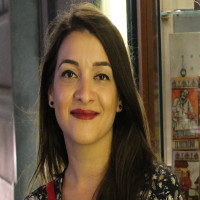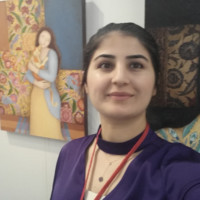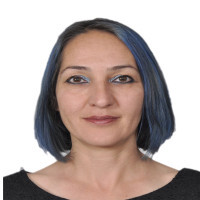Peer-reviewed Articles
Issue Editorial Board
Issue Reviewers


 0000-0002-1911-9066
0000-0002-1911-9066






 0000-0002-5865-7553
0000-0002-5865-7553





Aim & Scope
Journal of Tourism, Leisure and Hospitality (TOLEHO) is an international academic (online) open-access journal which dedicated to publishing original conceptual and empirical research papers in the fields of tourism, travel and leisure sciences. Journal of TOLEHO which is published online biannually is an open access digital publication subject to peer review (double-blind) specializing in the business and academic analysis of the various processes that take place in the leisure system. Primary publication language of the journal is English.
The journal aims to provide and improve the communication and collaboration between managers, academics and researchers working in the tourism industry to create a platform where new ideas concerning tourism are offered.
From an interdisciplinary perspective, the journal asks for and encourages and papers which come from the hospitality, travel, tourism and leisure sciences. It targets the fulfillment of the role as a forum for presentation and discussion of methodologies and theories, as well as the dissemination of studies and experiences. Furthermore, the journal has some aims such as contributing to other efforts to understand tourism and progress in the various forms of prevention of unwanted effects and enhancing the way by which the quality of life of residents in the target areas. As an editorial policy, publication priority is given to trans-disciplinary studies.
All articles are subject to ‘double-blind-peer-review’. Papers may include a variety of media elements including audio and visual files, a range of image formats and hyperlinks to websites and other online resources.
Submissions won’t be accepted which has been published elsewhere unless it is specifically invited for publication.
Author Guidelines
The Journal of Tourism, Leisure, and Hospitality (TOLEHO) is fully sponsored by the Anadolu University Faculty of Tourism. Therefore, there are no article submission, processing, or publication charges.
There are also no charges for rejected articles, proofreading charges, or surcharges based on the length of an article, figures, supplementary data, etc. All items (editorials, corrections, addendums, retractions, comments, etc.) are published free of charge.
All items published by the Journal of TOLEHO are licensed under a Creative Commons Attribution 4.0 International License. 
Authors retain copyright and grant the journal an exclusive right of first publication with the work simultaneously licensed under a Creative Commons Attribution 4.0 International License.
Authors can enter into separate, additional contractual arrangements for the non-exclusive distribution of the journal's published version of the work (e.g., post it to an institutional repository or publish it in a book), with an acknowledgment of its initial publication in this journal.
However, Anadolu University Press can also demand an additional license agreement with the study's corresponding author after its first publication to publish the manuscript in full text on various other platforms (web pages, databases, indexes, promotion circles, etc.).
Please note that the Journal of TOLEHO has a stringent policy for plagiarism screening. For this purpose, the journal uses Turnitin similarity reports. Manuscripts with a similarity rate of 25% or more in the default setting will be rejected directly.
Article Submission Requirements
Please ensure that the article you submit complies with the following style guidelines, which must be met before it is submitted for publication. Careful attention to these points—item by item—will save the author and the editors much valuable time. Deviation from these guidelines can delay the process.
Publication Language: The Journal of TOLEHO's primary publication language is English. However, the authors are free to include an alternative abstract and title of the study in any other language written in any script.
Length of articles: 5,000 to 11,000 words, including references, tables, graphs, and charts. And 3,000 to 5,000 words for essays or research notes. All papers have to be a minimum of 6 and a maximum of 20 pages long and must be submitted in .doc or .docx format. Please note that it is not necessary to insert page numbers and intent paragraphs.
Click to download the Title Page Template
Click to download the Manuscript Template
Click to download License Agreement
Making Submissions via DergiPark
The article—prepared according to the above templates (covering text, references, tables, and figures)—should be sent to the Journal of Tourism, Leisure and Hospitality (TOLEHO) via DergiPark. Please follow this link to reach the submission page.
Please, use the links below to access the visual descriptions of the application steps;
Ethical Principles and Publication Policy
Journal of Tourism, Leisure and Hospitality (TOLEHO) follows the COPE Code of Conduct and Best Practice Guidelines for Journal Editors. The basic values are presented below. COPE principles will be adopted in matters that arise outside of the following situations.
Responsibilities of Editors
Fair Play
The manuscripts submitted to the Journal of TOLEHO are evaluated for their scientific value, academic merit and intellectual content without considering the authors’ race, gender, sexual orientation, ethnic origin, citizenship, religious belief, political philosophy or institutional affiliation.
Editorial Independence
Decisions of rejection or acceptance are not determined by the political atmosphere, the policies of the government or any other parties out of the Journal’s Editorial Board. The Editor-in-Chief has full authority over the journal.
Confidentiality, Privacy and Disclosure
Editor-in-Chief and all editorial staff must not disclose any information about any submitted manuscript to anyone other than corresponding authors, reviewers, potential reviewers, other editorial advisers, and the publisher, as it is inappropriate. Editors, editorial board members and editorial staff must not use any unpublished content from a submitted manuscript for other purposes or their advantage.
Conflicts of Interest
Editors must decline any submitted manuscript in which they have conflicts of interest resulting from competitive, collaborative, or other relationships/connections with any of the authors, companies or institutions connected to the manuscripts, and they should ask another member of the editorial board to handle the manuscript.
Responsibilities of Reviewers
Contribution
Peer review process assists the Editor-in-Chief in making editorial decisions and also assists authors in improving the quality of their submitted manuscript.
Promptness
Any invited reviewer who feels unqualified or uncomfortable to review the submitted manuscript or knows that it is hard to review due to time limitations, should immediately notify the handling editor and withdraw from the reviewing process.
Objectivity
Reviews should be objective, and observations should be formulated clearly with supporting arguments so that authors can use them to improve the quality of the manuscript. Criticisms which personally aim authors are considered inappropriate.
Confidentiality, Privacy and Disclosure
Reviewers must not disclose any information about a submitted manuscript to anyone. Reviewers must not use the unpublished content from a submitted manuscript for their personal advantage or other purposes.
Conflicts of Interest
Reviewers must withdraw from reviewing the submitted manuscripts in which they have conflicts of interest resulting from competitive, collaborative, or other relationships/connections with any of the authors, companies, countries, communities, institutions etc. connected to the manuscripts. Reviewers can also withdraw from reviewing the manuscripts when any issue with potential harm to the double-blind review process, arises.
Acknowledgements
Reviewers should detect any published study that has not been cited in the manuscript. Any statement that is an observation, derivation or argument that has been reported in previous publications should be cited. A reviewer should also notify the editors about any substantial similarity or overlap between the manuscript under consideration and any other study (published or unpublished) of which they have personal knowledge.
Responsibilities of Authors
Reporting
Authors should present an accurate account of the study with their results, then an objective discussion of the significance of the study should follow. Manuscripts should contain sufficient detail and references to permit others to replicate the work. Review articles should be accurate, objective and comprehensive, while editorial 'opinion' or perspective pieces should be identified. Fraudulent or knowingly inaccurate statements constitute unethical behaviour, and such situations are considered unacceptable.
Novelty
Authors should ensure that they have written and submitted fully original papers and they have cited any study and/or words of others in the manuscript appropriately. Publications that have been influential in determining the nature of the study reported in the manuscript should also be cited.
Plagiarism
Plagiarism takes many forms, from "passing off" another's paper as the author's own, to copying or paraphrasing substantial parts of another's paper (without citation), to claiming results from the studies conducted by other parties. Plagiarism in all forms is regarded as unethical behaviour and is unacceptable at all.
Multiple, duplicate, redundant or concurrent publication and ‘salami-slicing’
Papers describing essentially the same research findings should not be published as more than an article or a primary publication. Hence, authors should not submit for consideration a manuscript that has already been published in another journal. Parallel submissions of the same manuscript to more than one journal at the same time is unethical and unacceptable. Unlike duplicate publication, ‘salami-slicing’ involves breaking up or segmenting a large study into two or more publications. As a general understanding, as long as the ‘slices’ of a study share the same hypotheses, population, and methods, “slicing” is not an acceptable practice.
Authorship
Authorship should be limited to those who have made a significant contribution to the submitted study. All those who have made significant contributions should be listed as co-authors. When there are others who make contributions in certain substantive aspects of the research project, they should be named in the “Acknowledgement” section. This is one of the primary responsibilities of the corresponding author.
Disadvantaged groups, children, animals as subjects
If any submitted work involves the use of animals, children or disadvantaged participants, authors should ensure that all procedures were performed in compliance with relevant laws and institutional guidelines and that the appropriate institutional ethical committee(s) has/have approved them; the manuscript should contain a statement about this. The privacy and security rights of all participants must always be considered.
Disclosure and conflicts of interest
All authors should disclose in their manuscript any financial or other substantive conflicts of interest that might be construed to influence the results or their interpretation in the manuscript. All sources of financial support for the project should be disclosed and these should be named in the “Acknowledgement” section.
Fundamental errors in published works
When authors discover a significant error or inaccuracy in their published work, it is the authors’ obligation to promptly notify the journal’s Editor-in-Chief and cooperate with them to either retract the paper or to publish an appropriate erratum.
Responsibilities of Publisher
In the cases of alleged or proven scientific misconduct, fraudulent publication or plagiarism, the publisher will take all appropriate measures to clarify the situation and to amend the article in question, in close collaboration with the Editors-in-Chief. This includes the prompt publication of an erratum or, in the most severe cases, the complete retraction of the affected work.
The Publisher and the Journal do not discriminate based on age, color, religion, creed, disability, marital status, veteran status, national origin, race, gender, genetic predisposition or carrier status, or sexual orientation in its publishing programs, services and activities.
Price Policy
No submission and publication fees or page charges.
Authors do not pay any fee for submission or publication.
Making Submissions via DergiPark
The article—prepared according to author guidelines (covering text, references, tables, and figures)—should be sent to Journal of TOLEHO via DergiPark.
Please, use the links below to access the visual descriptions of the submission steps;
- Visual material related to registration to DergiPark
- Visual material related to paper submission to Journal of TOLEHO
Full Open Access Strategy
Journal of TOLEHO is fully sponsored by Anadolu University Faculty of Tourism. Therefore there aren't any article submission, processing or publication charges.
There are also no charges for rejected articles, no proofreading charges, and no surcharges based on the length of an article, figures or supplementary data etc. All items (editorials, corrections, addendums, retractions, comments, etc.) are published free of charge.
Journal of TOLEHO is an open access journal which means that all content is freely available without charge to the users or institutions. Users are allowed to read, download, copy, distribute, print, search, or link to the full texts of the articles, or use them for any other lawful purpose, without asking prior permission from the publisher or the author. This is in accordance with the BOAI definition of open access.
Therefore, all articles published will be immediately and permanently free to read and download. All items has their own unique URL and PDF file.
All items published by the Journal of Tourism, Leisure and Hospitality are licensed under a Creative Commons Attribution 4.0 International License. ![]()
The licence permits others to use, reproduce, disseminate or display the article in any way, including for commercial purposes, so long as they credit the author for the original creation.
Authors retain copyright and grant the journal exclusive right of first publication with the work simultaneously licensed under a Creative Commons Attribution 4.0 International License.
Authors are able to enter into separate, additional contractual arrangements for the non-exclusive distribution of the journal’s published version of the work (e.g., post it to an institutional repository or publish it in a book), with an acknowledgment of its initial publication in this journal.
However, Anadolu University Press can also demand to make an additional license agreement with the corresponding author of the study after first publication, in order to publish the manuscript in full text on various other platforms (web page, databases, indexes, promotion circles and etc.).






